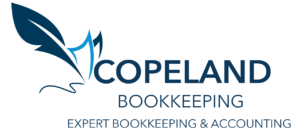When you’re just getting started as a business owner, one of the first big decisions you’ll make is how to structure your business. It sounds official—and it is—but don’t worry, it doesn’t have to be complicated.
Let’s break down the three most common options for new entrepreneurs: Sole Proprietor, LLC, and S-Corp.
💼 1. Sole Proprietor: Simple and Straightforward
What it is:
A sole proprietorship is the default business structure. If you’re freelancing, selling online, or running a side hustle without registering anything, you’re likely a sole proprietor already.
Pros:
- Easiest and cheapest to start
- No formal paperwork in most states
- You report income and expenses on your personal tax return
Cons:
- No legal separation between you and your business
- You’re personally liable for any business debts or lawsuits
- May look less “official” to banks or clients
Best for:
Freelancers, solo service providers, or anyone just testing an idea without major risk or liability.
⭐ Why Sole Proprietor Might Be the Best Option (at First)
If you’re just getting started, a sole proprietorship can be the smartest way to go:
- It lets you start immediately. You don’t have to wait for legal paperwork or state approvals—you can start making money today.
- It keeps things simple. No need to worry about separate business tax returns, employee payroll, or extra filing fees.
- You can always upgrade later. You don’t need to commit to an LLC or S-Corp right away. As your income grows or your risk increases, you can register your business officially and make that switch when it makes sense.
- You keep more control. Starting as a sole proprietor helps you learn your business inside out—before adding complexity.
There’s absolutely nothing wrong with starting small and scrappy. Many successful entrepreneurs began as sole proprietors and transitioned once they had the income and confidence to take the next step.
🧾 2. LLC (Limited Liability Company): A Step Up in Protection
What it is:
An LLC is a legal entity that separates you from your business. It gives you liability protection while still keeping things fairly simple tax-wise.
Pros:
- Personal assets are protected if something goes wrong
- More credibility and professionalism
- Flexible tax options (you can still be taxed as a sole prop or choose S-Corp later)
- Easy to scale as your business grows
Cons:
- Costs money to register and renew each year
- You’ll have to maintain some paperwork (like an operating agreement)
- Still need to pay self-employment taxes unless you elect S-Corp status
Best for:
Business owners who want protection and plan to grow—or just want to be more legit from day one.
🏛️ 3. S-Corp: For the Tax-Savvy and Growth-Focused
What it is:
An S-Corp isn’t a business type, it’s a tax status you can elect (usually after forming an LLC or corporation). It can save you money on self-employment taxes—if your business is profitable enough.
Pros:
- Can reduce how much you pay in self-employment taxes
- You pay yourself a salary and take the rest as owner distributions
- Good for growing businesses with consistent income
Cons:
- More paperwork and payroll setup required
- You must pay yourself a “reasonable salary”
- More IRS attention (and responsibility)
Best for:
Businesses making around $50K+ in profit and ready for more structure and tax strategy.
🧠 So… Which One Should You Choose?
Here’s a quick cheat sheet:
| Situation | Best Option |
|---|---|
| Just testing the waters | Sole Proprietor |
| Want personal protection + flexibility | LLC |
| Earning solid profits + ready to optimize taxes | LLC taxed as S-Corp |
Still unsure? You’re not alone! Talking to a CPA or bookkeeper can help you choose the best fit based on your goals, income, and risk level. Here at Copeland Bookkeeping, we
Bottom line:
Your business structure can impact everything from how much you pay in taxes to how protected you are legally. The good news? You can start simple and switch later as your business grows.
